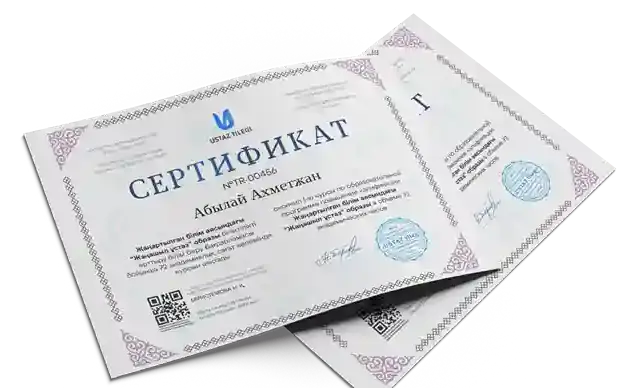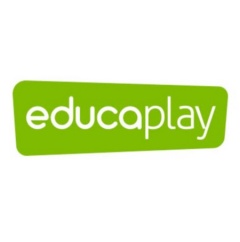Назар аударыңыз. Бұл материалды сайт қолданушысы жариялаған. Егер материал сіздің авторлық құқығыңызды бұзса, осында жазыңыз. Біз ең жылдам уақытта материалды сайттан өшіреміз
Жақын арада сайт әкімшілігі сізбен хабарласады

Бонусты жинап картаңызға (kaspi Gold, Halyk bank) шығарып аласыз


Жаукумова Камар Кайратовна
Дипломдар мен сертификаттарды алып үлгеріңіз!


Материалдың толық нұсқасын
жүктеп алып көруге болады
-
Unit:5
Teacher’s name:
Zhaukumova Kamar Kairatovna
Date:
Grade:10
Number present: absent:
Theme of the lesson:
CONDITIONALS
Learning objectives(s) that this lesson is contributing to:
10.3.7 - use appropriate subject-specific vocabulary and syntax to talk about a range of general and curricular topics;
10.6.7 - use if / if only in conditional structures use a variety of relative clauses including with which [whole previous clause reference] on a wide range of familiar general and curricular topics
Lesson objectives:
All learners will be able to: know, understand the rule
Most learners will be able to: answer the questions
Some learners will be able to: make own examples, rewrite sentences
Students with SEN:
-
Read the examples
-
Write the structure of conditionals
Value links:
Respect each other, create friendly atmosphere
-
Plan:
-
Part of the lesson/Time
Teacher’s activity
Student’s activity
Assessment
Resources
Beginning of the lesson
Pre-learning
«Brainstorming» method
12 min.
Check up home task by asking questions and give them jetton to divide in to 3 groups.
Revision of previous lessons materials with the help of the teacher. Differentiation: “verbal support”
T asks different questions connected with the theme and tries to help Ss to give the correct answer. T asks leading questions to clarify the theme to the Ss who needs T support. Ss give the ir possible answers. After that T introduces the aim and
theme of the lesson.
Questions:
Is Stress bad or good for you?
Which type of intelligence do you think best describes you? Why?
Which side of your brain do you think is dominant? Why?
Aim: Revise the previous lessons material.
Efficiency: Ss refresh their mind before starting new theme.
Descriptor:
-answer the 1st- question
- answer the 2 nd- question.
Total: 2points
Encourage Ss who answer the questions
Jetton
Whiteboard
Students Book
Middle of the lesson
Group work
Presentation part.
10 min.
TASK 1.
T give and direct Ss attention to the material. Give Ss time to fill the graphic organizers and present to the class.
Read the material and fill the table. Present to the class
-Comprehend the material
- Present the work fluently
- Fill the table correctly
3 points
Student with SEN – read the poster
Scaffolding material
Students Book Graphic org.
-
Aim: to present the types of conditional sentences.
Group work
5 min
TASK 2. T give for each group picture and ask Ss to determine which type belongs to and make sentences. Then elicit how types of conditional sentences differs from each other.
Aim: to present how to change conditionals. Efficiency: Develop their writing skills.
Read the sentences on given picture and make sentences.
Descriptor:
-Identify type of sentences correctly
-make sentences correctly
2points
Student with SEN – read the sentences – 2 points
Whiteboard
Picture
Students Book
Pair work
8 min.
TASK 3. Explain the task and give Ss time to complete it.
Aim: to practice conditionals
Exercise 3. Complete the gaps.
Descriptor:
- complete sentences correctly
2points
Students with SEN – rewrite the sentences – 2 point
Whiteboard
Cards
Individual work
5 min.
TASK 4.
Ask Ss to follow the link and answer the questions.
Aim: consolidate the acquired knowledge.
Choose the best answer for questions.
Descriptor:
-choose 2 correct
answers - 1 point
-choose 3 correct answers –2points
-choose 5 correct answers –3points
Total: 3points
Whiteboard

https://www.educaplay.com/user/10368925-kamar/
End of the lesson.
Reflection
5 min.
The “Human brain” method was used as a reflection. It provides the opportunity to the students to provide a quick reflection on what they learned by choosing a mark and responding to questions.
Hometask
Ss choose the mark for themselves and answer the questions like : What is the most important issue discussed today?
What did you find difficult to comprehend? What are some questions you would like to explore further? Aim: To know how many Ss got the theme. Efficiency: To make appropriate modifications that would enhance students’ learning engagement and performance Differentiation:
«Conclusion» method is used to finish the lesson.
Ss evaluate each other and
encourage classmate with phrases like:
Well done!
Brilliant! Good job! I like it!
Cards

Students Book
Additional information
Differentiation – how do you plan to give more support? How do you plan to challenge the more able learners?
Assessment – how are you planning to check learners’ learning?
Health and safety check
ICT links
-
Students will support each other.
-
More capable students will be given more challenging material to work with in
-
The teacher and students will give brief feedback.
-
ICT
-
-
order to allow them to be more challenged.
-
The students will be supported by the teacher during independent work.
Reflection
Use the space below to reflect on your lesson. Answer the most relevant questions from the box on the left about your lesson.
Were the lesson objectives/learning objectives realistic? Did all learners achieve the LO?
If not, why?
Did my planned differentiation work well?
Did I stick to timings?
What changes did I make from my plan and why?
Summary evaluation
What two things went really well (consider both teaching and learning)?
1:
2:
What two things would have improved the lesson (consider both teaching and learning)?
1:
2:
What have I learned from this lesson about the class or individuals that will inform my next lesson?
-
I типтегі шартты бағыныңқы сөйлемдер
I типтегі шартты бағыныңқы сөйлемдер, яғни нақты шартты сөйлемдер осы кезеңге немесе болашаққа қатысты орындаларлық жағдайды көрсетеді. Басыңқы сөйлемнің баяндауышы келер шақта, ал бағыныңқы сөйлемнің баяндауышы осы шақта қолданылады. Екеуі де қазақ тіліне келер шақпен аударылады.
|
Шартты бағыныңқы сөйлем |
Басыңқы сөйлем |
|
Present Indefinite |
Future Indefinite |
|
Unless he is busy Егер оның қолы бос болса, |
he will come to the meeting. ол жиналысқа барады. |
Шартты сөйлемдерде if және unless жалғауларында айырмашылық бар:
If we hurry we’ll get there on time. — Егер біз асықсақ, біз онда өз уақытында боламыз.
Unless we hurry we’ll be late. — Егер біз асықпасақ, онда біз кешігеміз.
First Conditional
The type 1 conditional is used to refer to the present or future where the situation is real. The type 1 conditional refers to a possible condition and its probable result. In these sentences the if clause is in the simple present, and the main clause is in the simple future.
Use for:
> Predictions
>Superstitions
> Plans
> Promises
> Offers
> Suggestions
> Warnings
FORM: (If/when + Present Simple, Present Future)
Example:
· If you don’t eat now, you’ll be hungry later
· If she doesn’t call, I’ll be annoyed.
· When the sun sets, it will get cold.
· If aliens arrive on earth, I will greet them!
· If you leave the milk out, it will spoil. (Advice or warning about the present)
II типтегі шартты бағыныңқы сөйлемдер
II типтегі шартты бағыныңқы сөйлемдер немесе нақсыз шартты сөйлемдер осы кезеңге немесе болашаққа қатысты орындалуы мүмкін емес жағдайды көрсетеді. Бұндай жағдайда бағыныңқы сөйлемнің баяндауышы өткен шақта, ал басыңқы сөйлемде баяндауыш алдында should, would (could, might) және инфинитив to–сіз қолданылады.
To be етістігі бұл жағдайда барлық жақта жекеше және көпше түрде were формасында болады.
|
Шартты бағыныңқы сөйлем |
Басыңқы сөйлем |
|
Past Indefinite |
should (would, could, might) + Invinitive without to |
|
If I had money Егер менде ақша болғанда, |
I would buy a flat. мен пәтер сатып алған болар едім. |
Second Conditional
The type 2 conditional is used to refer to a time that is now or any time, and a situation that is unreal. These sentences are not based on fact. The type 2 conditional is used to refer to a hypothetical condition and its probable result. In type 2 conditional sentences, the if clause uses the simple past, and the main clause uses the present conditional.
FORM: (If + Past Simple, … would + Infinitive)
Used for:
-
To imagine life is different
>Things in the future that are unlikely.
>Things that are impossible in the present
a. If she lived in London, she would have English friends.
b. If I didn’t want to go, I would tell you.
c. If I didn’t finish my homework, I wouldn’t tell my teacher.
2. Hypothetical Questions
To ask someone to imagine what they would do in a different situation.
Example:
a. What would you do if you quit the job?
b. If you won a million dollars, would you travel the world?
3. Give Advice
b. If I were her, I’d break up with him.
4. Give Reasons
a. If I had the money, I’d lend it to you.
b. If I wasn’t so busy, I would invite you over for dinner.
III типтегі шартты бағыныңқы сөйлемдер
III типтегі шартты бағыныңқы сөйлемдер өткен кезеңге қатысты орындалуы мүмкін емес жағдайды көрсетеді. Бұнда бағыныңқы сөйлемнің баяндауышы аяқталған өткен шақта (Past Perfect), ал басыңқы сөйлемде баяндауыш алдында should, would (could, might) және перфекті инфинитив қолданылады. Бұндай сөйлемдерді қазақ тіліне аударғанда екінші типтегі сөйлемдерге ұқсас аударылады.
|
Шартты бағыныңқы сөйлем |
Басыңқы сөйлем |
|
Past Perfect |
should (would, could, might) + Perfect Invinitive |
|
If you had called me Егер сен мені шақырғанда, |
I would have come.
Мен келер едім |
Third Conditional
The type 3 conditional is used to refer to an unreal past condition and its probable past result. In type 3 conditional sentences, the if clause uses the past perfect, and the main clause uses the perfect conditional.
>Talk about past
>Unreal Past
FORM: (If + Past Perfect, Perfect Conditional (would have+V3))
Example:
· If I had left earlier, I wouldn’t have missed my flight.
· If you hadn’t been so rude, they would have invited you back.
Notes:
“would” can change with “could (Probability/certainty) or might (possibility/ability)”.
Example:
If she had studied more, she might have passed.
If you had lent me your car, I could have got there faster.
Let’s play the games link below and get a certificate!!!
|
Students |
Task 1 |
Task 2 |
Task 3 |
Task 4 |
Total score |
|
Абдинабиева Назерке |
|
|
|
|
|
|
Амрина Азиза |
|
|
|
|
|
|
Ахметова Айша |
|
|
|
|
|
|
Байыр Айдын |
|
|
|
|
|
|
Балташ Фатима |
|
|
|
|
|
|
Бескен Диас |
|
|
|
|
|
|
Ержанқызы Гүлдерай |
|
|
|
|
|
|
Ермек Айдын |
|
|
|
|
|
|
Есенбекова Жансая |
|
|
|
|
|
|
Жұматай Нұрболат |
|
|
|
|
|
|
Өмірхан Гүлназым |
|
|
|
|
|
|
Сәкен Сабина |
|
|
|
|
|
|
Сулейменов Данияр |
|
|
|
|
|
|
Төсельбаева Ақкербез |
|
|
|
|
|
|
Тынысбекова Томирис |
|
|
|
|
|
|
Шегебек Назым |
|
|
|
|
|


